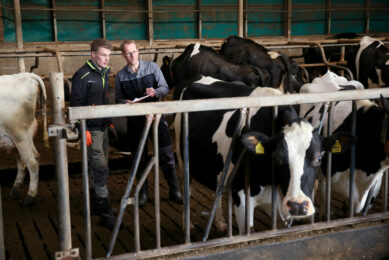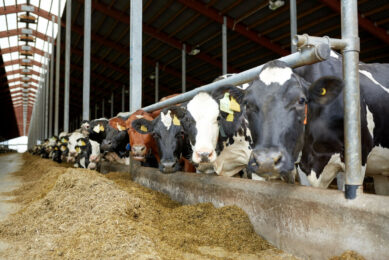Russia: Compulsory tagging to cost dairy firms millions

Compulsory tagging of all dairy products on the Russian market will cost Russian dairy plants around Rub20 billion ($360 million) per year, Russian union of dairy producers Soyuzmoloko estimated.
A milk processing plant with the capacity of 100 tonnes of milk per month would have to spend from Rub150 million to Rub300 million ($2.5 to $5 million) on the tagging per year, Soyuzmoloko said.

QR codes, improve traceability
All dairy products in Russia must be tagged with special QR codes starting from 1 July of 2020, Russian government stipulated in a decree posted on its website 9 November 2019. The measure is called to wipe out the counterfeit products from the Russian market and improve traceability across the supply chain, the government said in an explanatory note to the decree.
The plants are instructed to hire additional staff and purchase equipment to comply with the new regulation.
Most Russian dairy producers spoke against the decree. Anatoly Losev, director of the Russian dairy manufacturer Molvest told local news outlet MilkNews that the tagging project would halve margins in the Russian dairy industry. Losev claimed that this step was too extreme as the average profitability in the industry was already at a rather low level ranging between only 5% and 7%.
The tagging of products with QR codes is not promising any advantages from a point of view of battle against counterfeit – it only allows better tracking of the number of actually released products, Losev said.
Tula dairy plant would loss around 30% of profit from the compulsory tagging of its products, according to Alexander Shirinkin, director of the company. This is only a preliminary figure – the actual losses could be a way bigger.
Consumers and demand
Not all companies would be able to comply with the compulsory tagging, some will leave the business, Igor Dyu, co-owner of the Russian dairy company Galaktika told to Russian Business Consulting agency. It is important to understand that it would cause a hike in retail prices and could negatively impact the demand, Dyu added.
When Russian veterinary body Rosselhoznadzor introduced the Mercury electronic traceability system in Russia a few years ago it was accompanied with a strong PR campaign in the Russian state-owned media focused on the presence of the counterfeit products on grocery shelves. Now, with a similar situation, Russian customers are worried that “all dairy plants in Russia are manufacturing counterfeit products,” Dyu said.
The russian veterinary service has been repeatedly complaining about the huge number of counterfeit dairy products in supermarkets since the introduction of the 2014 food embargo. In most cases products are recognised as being counterfeit when their actual composition doesn’t match the one mentioned on the label. Over the past few years, some Russian dairy plants have been replacing milk oil with vegetable fats, primarily palm oil, in a bid to cut production costs. These changes have not been reflected on the products’ labels.
Join 13,000+ subscribers
Subscribe to our newsletter to stay updated about all the need-to-know content in the dairy sector, two times a week.










